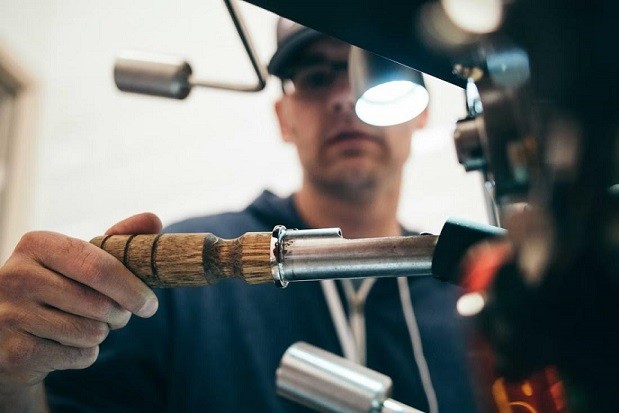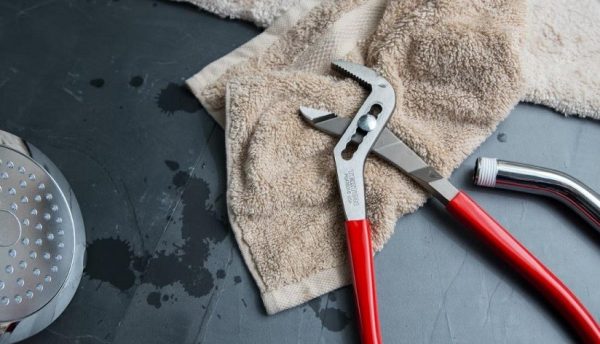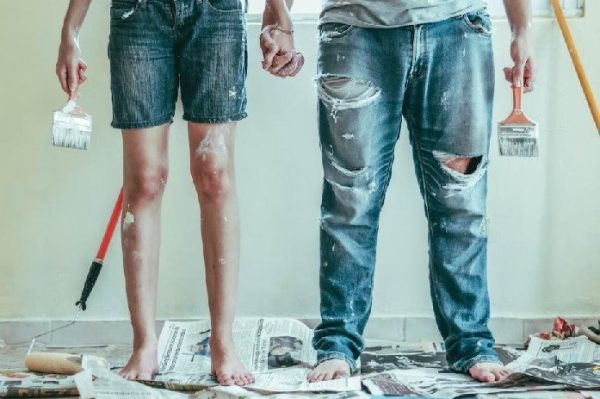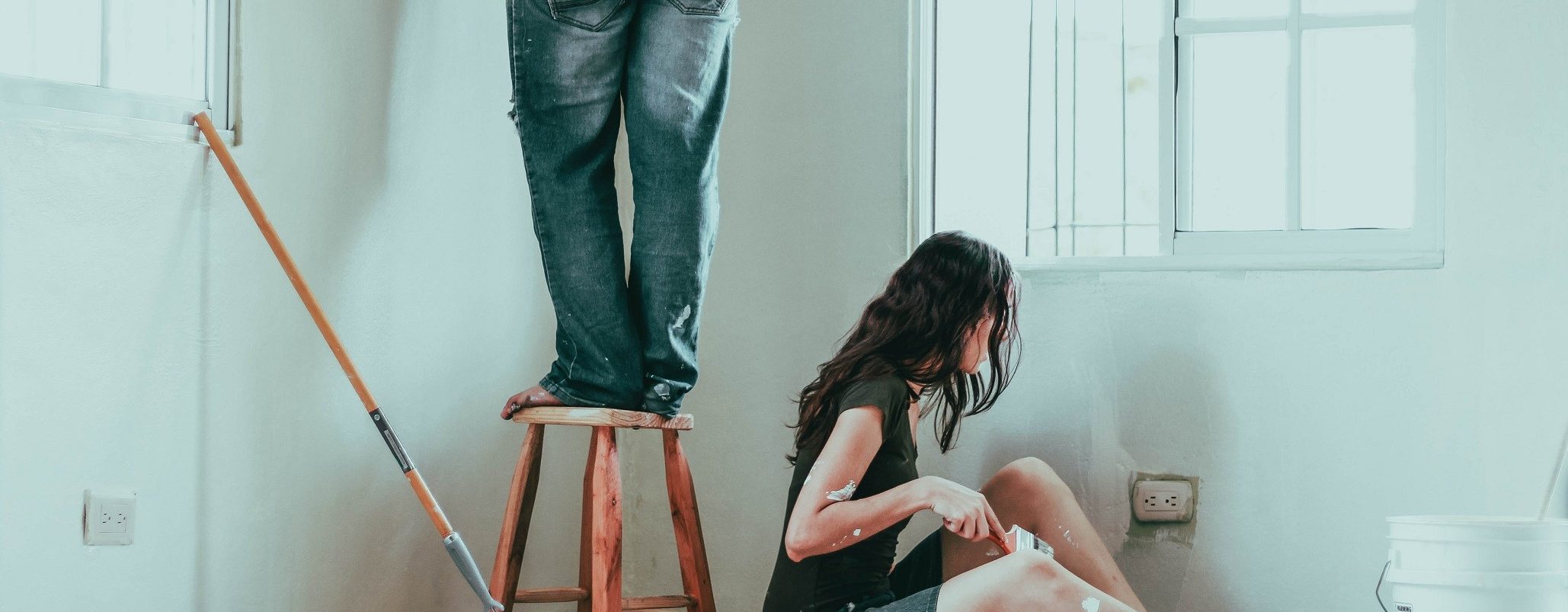Sometimes, we think it’s better to fix something ourselves than go through the process of hiring a tradesperson. Whether it’s painting and decorating, plumbing, or working with electricals, lots of us are looking to save a bit of time and cash getting the job done ourselves. After all, what’s the worst that could happen?
How common is it for people to attempt the job themselves and why?
Trying to fix a problem yourself before hiring a professional is more common than you might think. When we asked 500 people if they or someone else in their household has ever attempted to fix something in the home before or instead of hiring a professional, 68% said yes.
Attempting to sort the issue yourself first appears to be more common with the older age groups, as more than three-quarters of respondents aged 55-64 answered yes, compared to 69% of 25-34 year olds.
For over two-thirds of us, saving money is the main reason we’ll attempt the job ourselves. Saving time was the next biggest reason at 37%. Just under a third of Brits said they do it for enjoyment, and a quarter do it because ‘I have the skills and tools to do so’. However, for almost a fifth of us, the main reason is impatience.
We spoke to over 300 trade experts to get their opinions on the matter. 74% of them agreed that the most common reason for a botched job is clients trying to cut costs. Our trade experts also see inexperience as a reason for botches occurring, with 36% of our experts believing this is the cause of the mistakes.
When asked if they’d ever had to call a professional to finish a DIY job after attempting it first, a third of respondents said yes. But it’s 55-64 year olds that need the most help, with 37% of them asking for help to fix a job, compared to just a quarter of 35 – 44 year olds.
Most common botched jobs
According to our panel of trade experts, the most common botched jobs to be called out for are:
- Fixing leaks
- Plumbing in appliances
- Plumbing in bathrooms/kitchens
- Changing taps
- Painting and decorating
All of our trade experts have had to repair a botched job at some point in their careers, with 30% stating that they fix mistakes at least monthly, sometimes even more frequently. 6% even reported having to fix botched jobs at least once a week!
When asked which jobs our experts advise people not to try on their own, ‘anything to do with water’ came out on top. This is no surprise, as three of the top botched jobs involve water: fixing leaks, plumbing in bathrooms, and changing taps.
Other jobs our experts warn against are electrical installations and gas work, without proper experience these tasks can cause some real damage if done incorrectly.
More than a third of tradespeople said a botched job could add another £100-£500 on top of the price, due to the extra work that needs doing.
Fixing leaks
Plumbing tasks may seem small, but they can cost you hundreds in the long run if you mess up the job.
Leaks often come with a moment of panic and so it’s no wonder that many jump right in to fix the problem themselves. Fixing a leaky radiator costs an average of £180 across the country, so it may be tempting to attempt this yourself. Whilst 70% of the general public choose to do the job themselves to save a bit of cash, it can actually be a lot pricier when a tradesperson is finally called to correct any mistakes.
Jamie, owner of Billabong Plumbing & Gas Services, said:
“When money is tight, people will often resort to attempting plumbing jobs themselves to save money, but it can end up costing them more in the long run.”
“They then have to pay for my time to correct the problem, replacement parts and the cost to repair the damage, which is a lot more expensive than paying me to do the job in the first place.”
Plumbing in appliances
Making mistakes installing appliances such as radiators, taps and even electric showers is another common reason tradespeople get called out. These often seem like smaller, simpler jobs and with a lot of tutorials on YouTube, many may feel they have the confidence to try their hand at these jobs themselves.
However, according to our survey, making mistakes installing appliances is the second most common call out for tradespeople to fix.
Jamie, owner of Billabong Plumbing & Gas Services, said:
“The most common jobs people attempt include fitting their own radiators, plumbing in taps, and installing electric showers. But when these jobs go wrong it often results in leaks and water damage, which is when I get a panicked call from a customer asking for help.”

Plumbing in bathrooms/kitchens
It goes without saying that kitting out a new bathroom or kitchen isn’t a cheap job, so it’s no wonder that many are looking to save a bit of cash when it comes to installation costs. However, it’s also quite easy for things to go wrong, which is why it takes third place on our list.
Lorenzo, heating engineer, states:
“I am often called by people who have had a go at plumbing in a toilet in a downstairs loo. I think because it is seen as a small job and there are lots of YouTube tutorials, people feel confident having a go. The issues usually arise if they haven’t got the correct tools or an understanding of how a toilet functions.”
If your plumbing job goes wrong, hiring a professional plumber for the bathroom would cost £60 per hour, and £100 to plumb in an appliance.
Kitchens involve a lot of hard work, with plenty of plumbing, fittings and appliances to install, they are large projects that may be best left to the professionals.
Buck, kitchen fitter, says:
“To fit a kitchen, it would usually take me one day. To fix a botched kitchen, it would take a full day to disassemble and another full day to fit it correctly. If there was no way of correcting the previous job, we would have to rip it out, fit it, and have a full renewal to save time and money. So depending on the situation, the price rise could be anywhere from 50% to 100%.“
With the average day rate for a kitchen fitter at £200, getting a DIY kitchen job wrong can end up costing you a lot of money.

Changing taps due to a leak
Fixing a leaky tap costs, on average, £110 and is a job that may be best left to the professionals. It may not seem like a huge problem but without fixing it, it can lead to mould build-up, structural damage and cause you to waste both water and money.
When it comes to changing the taps themselves, a single nut screwed too tightly can lead to more damage, which is why ensuring someone with the right tools and knowledge takes on the task is so important.
Put it this way, if you’ve spent £100 on new taps and make a mistake fitting them yourself, you may have to pay around another £110-£130 for a professional to fix the problem, and that’s if the issue is just with the taps. Attempting to fix it yourself could mean doubling the cost compared to if you just called a plumber in the first place.
Plastering, painting and decorating
To paint and decorate well, it is important that plastering is done correctly. Without this, even a well-painted wall will still look rough and bumpy.
Ollie, plasterer, said:
“I get called out for botched plastering jobs and sometimes this adds another day of work on top to have to re-prep the area and remove anything that they have done already. This adds roughly £150-£200 to the job.”
As the average day rate for a painter/decorator is £190, it would work out cheaper to hire the professional in the first place to ensure the plastering is done correctly before decorating anything.
For the extra time and money that botched jobs can cost clients, it can be better to hire a professional in the first place if you are planning a project that requires technical skills and knowledge, or at least seek advice before attempting a job yourself.
Jobs involving water, electricity and gas should be avoided by those that don’t have the experience, tools, or knowledge levels necessary to do the job. Jobs like this come with huge risks if done incorrectly and so they should be left to those who know exactly what they are doing.
We all love to save time and money by fixing a job ourselves with a bit of DIY, it is just important that we understand some tasks may be too big to take on ourselves, which is why professional tradespeople exist.
However, ensuring you have the right tools and materials for a job is something you can control – whether you want new taps for your bathroom, or new kitchen worktops, Toolstation has everything you need.

Methodology
Toolstation asked 500 people if they have had experience with trying jobs in the home themselves before then having to call a professional to finish it off.
Toolstation also surveyed their panel of trade experts, to gather the opinions of tradespeople – asking them questions around the added time, reasons, and costs of jobs done incorrectly to gather the data.
Trade experts Jamie, Lorenzo, Ollie, and Buck all provided some words on their experiences.

